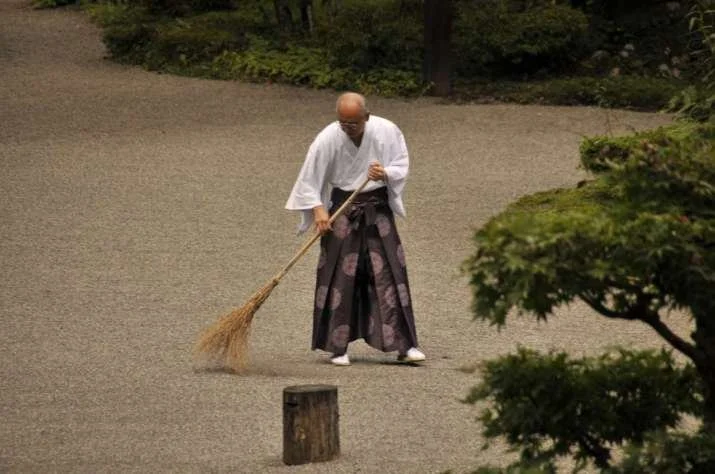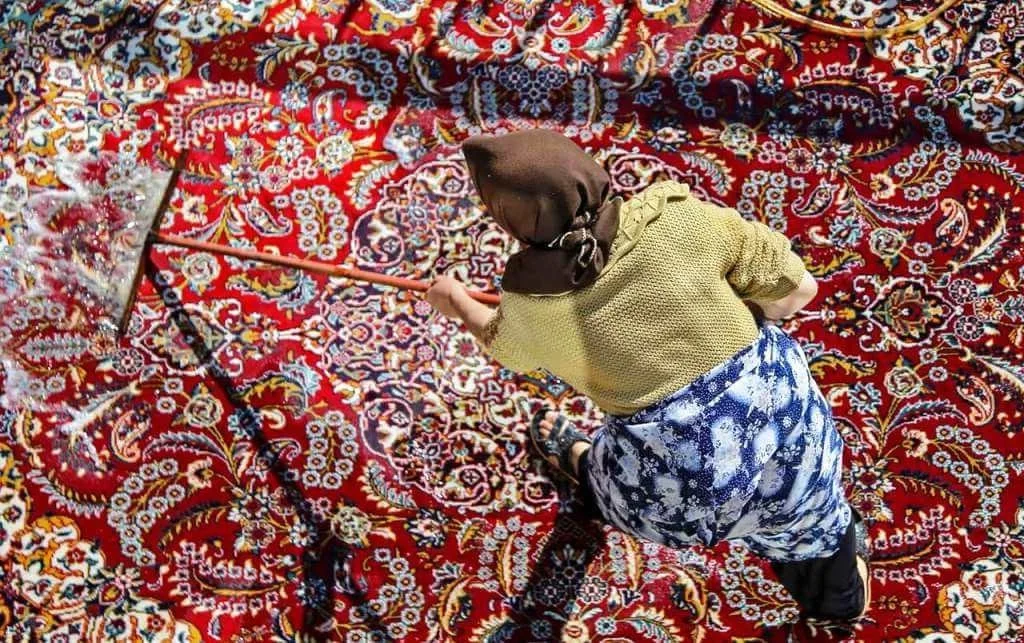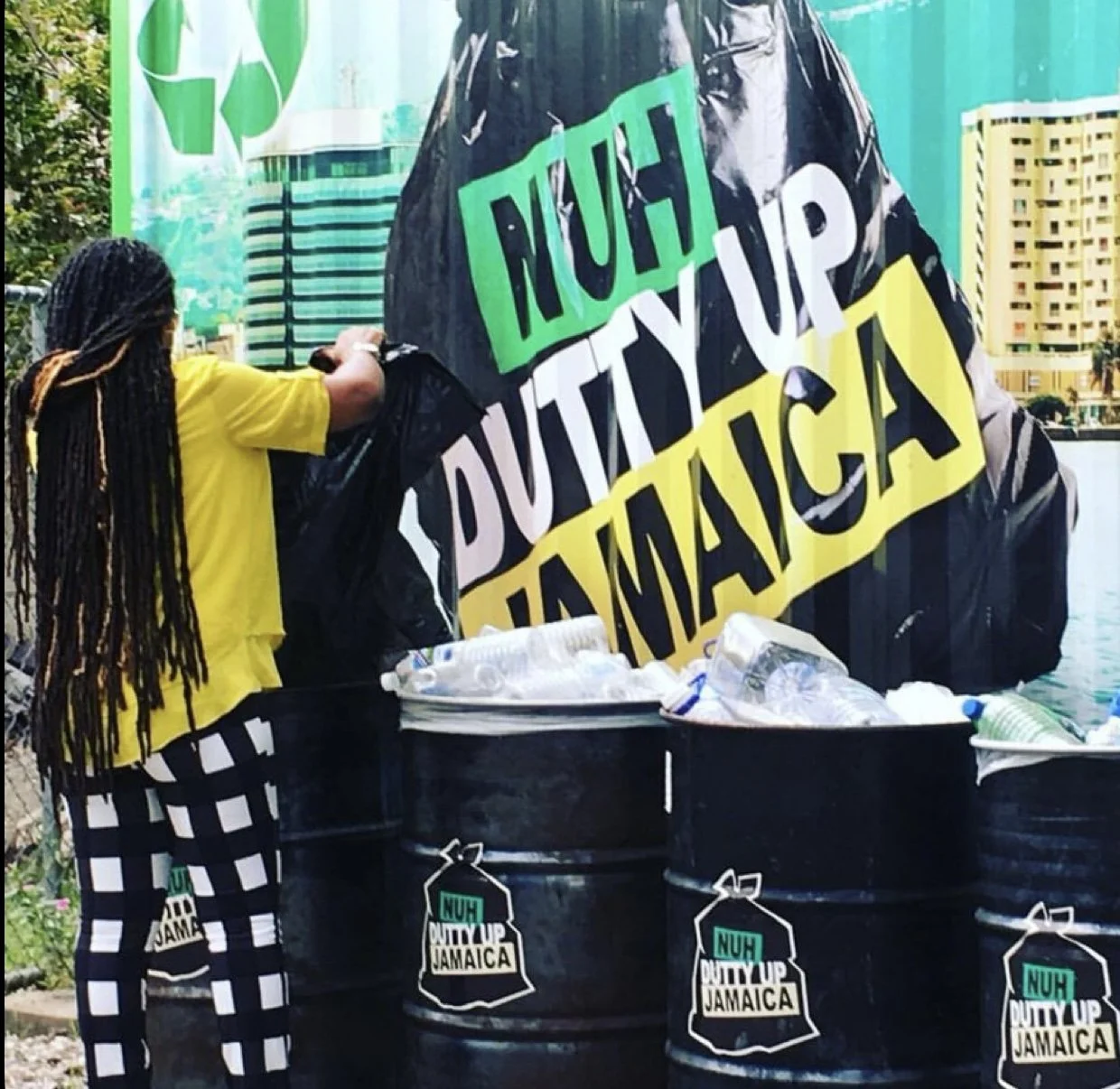Clean and Pristine Planet
Explore cultural practices and cleaning rituals around the world
and see how ancient ways influence the present and shape our future.
Africa
Flick through an atlas and world map, and you’ll notice that the placement of Africa is often depicted in the centre of the world, even though geographically, apparently - there isn’t a nation and country that is the centre of the earth. 54 nations on the continent and each nation embodies their own distinctive dialect, identity and customs.
Most African nations follow present day practises to clean, and hygiene is at the forefront. In Egypt, Morocco, South Africa, Nigeria and Ghana families hire housekeeping services and cleaning methods vary from region to region and can be led by the climate, location and season, particularly in rural areas. Hanging fresh items of clothing and bedding out on washing line first thing in the morning to blow dry out in the open air is the standard. Sweeping is done first thing in the morning and throughout the day and many compounds have a separate broom for cleaning inside indoor floors, earth floors, and outside interiors such as verandas and courtyards. Brooms are handmade from natural and sustainable reeds, leaves, grass, stalks and branches, and the intricate craftmanship makes for a sturdy, long lasting essential. Not to mention, the broom is used for spiritual practices to perform cleansing rituals to sweep away evil spirits and restore balance, cultural-preservation and renew protection.
Uganda
Sorghum Stick broom
Can be long and lithe in appearance and has gained cosmopolitan attention from ethical buyers and the home décor and interiors industry.
Ghana
Asante region of Ghana - Praye Broom
Bolgatanga, northern Ghana - Bolger Grass broom.
South Africa
In Zulu communities - Imbenge Grass Broom
Morocco
Palm Leaf Broom
Ethiopia
In honour of Ethiopia and Eritrea religious festival Meskel - there is the Meskel Broom.
The brooms listed represent their ethnic originality and it’s no wonder that artisans add their own individual touch, using natural fibres and beautiful splashes of bold colour. More than just a cleaning tool – the design of these brooms adds a sustainable aesthetic and can be used to offset home interiors to a remarkable effect - propped up alone next to a large plant and used as an eye-catching feature hanging on a wall.
Spain
Here on the Iberian Peninsula beyond the sangria, castanets and traditional folk and flamenco dancers - you’ll find arguably, some of the most heavenly smelling cleaning products that are popular and internationally superior.
In Spain, it’s not about cleaning for cleaning sake using mundane supplies, it’s about the experience. A delicious scent tends to activate consumers into a buy and try mode and these products not only deliver on leaving surfaces and floors spotless, the fragrance lingers on after cleaning is complete. Well before the Euro when the spanish currency was the Pesata and a siesta was taken without fail – in hot regional climate zones, cleaning would sometimes start from the early hours of the morning. In modern times cleaning is still top priority - most places whether home or otherwise have tiled floors and sterile, buffed clean floors is a must - shoes must be taken off at entrance of a home. In Spain, a clean home is an extension of who you are.
Japan
In Japan, there are three concepts that go together and intertwine seamlessly and are a practiced in everyday life.
Ikigai, Osoji and Kanso.
The aim with all three concepts is to be intentional – to think about and question what we’re doing and be clear minded about being human and how we show up; learn to live a life we like and love – happenings that brings meaning to our existence and how we can organise and respect our surroundings to the betterment of ourselves and others. We are knowingly and unknowingly, planting and scattering seeds day by day, month by month, year on year. How these seeds grow, develop and survive all depends on our attitude and behaviour.
Ikigai means, I guess in simple terms – is a reason and anticipation for existence, being alive. In descriptive terms - finding your ikigai is the reason you wake up in the morning and with an invisible optimistic note to self of what you’re going to do to make the day be a good one. Having said this - finding your ikigai can look different to the next persons and it’s one of them ones where there isn’t a wrong answer and there isn’t a right answer.
Iki meaning life and Gai meaning value and worth. What is your Ikigai? What is the value of living? What is the value of life?
It’s worthwhile to consider the psychological aspect of Ikigai when one cleans for a living. Imagine living in a world where no one is employed to clean public spaces and services. Close your eyes and picture this please. Would you tolerate eating in a dirty restaurant? In the workplace and place of leisure and entertainment - could you use a foul-smelling toilet full of left over excrement on the insides and urine on the toilet seat and floor? No one emptying the sanitary bins? sit on a filthy train and aeroplane? buy groceries from a dusty and untidy shop and supermarket? Litter all over the pavement on every corner? am I being a bit extra and dramatic here? not really and you get where I’m going. Therefore, there is motivation that comes from being useful and providing that miracle of cleanliness, to offer a solution with 10 fingers, standing on 10 toes to clear and dispose of the mess and tidy the space. More importantly, appreciation for individuals who are doing the cleaning is crucial.
People who clean for a living have a sense of ikigai, even if they aren’t aware of it. Their contribution adds high value, their hard work helps to subtract and minimise germs, diseases and infections. Their ikigai affects our wellbeing, and our health is in their hands.
Kanso is one of the seven zen principles of Wabi-Sabi, a philosophy based on finding peace and beauty in keeping life simple and peaceful. The concept of Kanso is used to define what really matters while living and breathing and is used throughout storytelling ideas in architecture and design interiors. If you’re seeking inspiration and ideas to have more freedom in space, and less clutter at home, Kanso can be applied by getting rid of what’s no longer needed and in use, freeing up the chance for fresh, clean energy to flow through you and your home.
Osoji stems from ancient and indigenous Shinto religion and the cleansing of shrines before and after a ceremony. This is an end of year cultural tradition and means Great Cleansing, the Big Clean and symbolises our relationship with surroundings and purification of the environment to welcome in the first month of the year. Osoji is a physical, emotional and spiritual way of getting rid of any negative experiences, pollutants, bad luck and past mishaps. It’s a family affair where everyone in the household gets involved and cleans every nook and cranny, on top, behind and beneath furniture and appliances, windows, skirting boards and extends to outside of the home – inside and outside vehicles are given a spruce. Out goes anything that’s broken, past it’s sell by date and not in use. In administration spaces and schools, Osoji is carried out – with paperwork reorganised and filed in its correct place and old documents that are no longer needed are thrown out.
Iran
Nowruz is a tradition to celebrate Persian New Year and the coming of Spring, known as Khāne-Takānī translates as shaking the house by where preparation for new year can start two weeks beforehand.
Khāne-Takānī is to welcome ancestors who nourish and bless the home and place of festivities and by doing purposeful cleaning. The spirit of ancestors can be invited, and families honour them in a clean home without impurities. Moreover, Islam places great important to cleanliness which gives more credence to keeping up with the tradition. Rugs are shaken out and refreshed and carpets are scrubbed, curtains and drapes are cleaned and the whole house gets a deep clean of dusting and wiping down. Nowruz means new day and is a time to gather and put houses in order and revive and restore everywhere to its former glory. It’s also a significant time to self-cleanse and reflect on new beginnings and clean away any signs of hopelessness, doom and gloom and be ready to embrace brighter and lighter days ahead.
Greece
Throughout Greek Mythology/Ancient Greece to modern day times, cleanliness is a way of life. Greek Goddess Hygieia was the Goddess of cleanliness, health and hygiene and a healer of sickness. She is related to the God of Medicine Asclepius, who was the son of Apollo. Apollo was the son of the king of the gods Zeus and like his father, an Olympian deity and immortal being who ruled Greece.
What’s quite fascinating about traditional and cultural norms in the Greek mainland and her islands is that the elderly are so strong and take full responsibility and pride in whitewashing their properties. Every Easter, houses, fences and stone steps get a freshening up. Whitewashing is a sample of cleanliness and a process that gives Greece its allure. The results of whitewashing houses is a symbolic signature of the classic and sophisticated exteriors dotted around mountain views, villages, cities and stunning coastline. The solution is a mixture of lime calcium oxide, water and coarse salt and is used as a customary disinfectant, insect repellent and removal of bacteria that can cause harmful diseases and infect the home.
Every year the ancient Anthesteria festival takes place and is in honour of Dionysus, the god of winemaking, fruit and fertility. This three-day celebration means the festival of flowers and is usually aligned with the full moon and marks the end of winter. During this period, purification rituals and cleanliness customs from the Bronze Age can still take centre stage in the 21st century and is a sacred part of Greek celebrations and hospitality. Cleaning inside homes and public places is done to lean into the mystical foundation already in place and encourage a season of growth, prosperity and create opportunities for health, fortune and happiness.
Guatemala
Every December 7th Guatemalans celebrate La Quema Del Diablo, a fiery fiesta that follows early beliefs, dated back centuries to colonial times and the genocide of their indigenous people.
From then it was understood that the devil is hiding somewhere in a dusty corner of the home or unused items and the aim was to chase the demonic spirits out and burn the house down. And this is what Le Quema Del Diablo means. While the home is not literally burned down, historically on the 7th of December, women would throw away old stuff along with trash on the road and set alight to burn up in flames. In recent times setting a faux devil replica marks the occasion and it’s imperative to carry out a thorough cleanse throughout the home and cleanse the soul.
Caribbean
It is to be acknowledged that first native people and indigenous tribes throughout the Caribbean had their own natural, authentic cleaning rituals and during colonisation and slavery, western practices were imposed on the region and left an imprint on how cleaning is done today.
Aside from language, food, music, history and origins - most households in the Caribbean and the diaspora have one thing in common and this is the generational house-proud teachings on how to cleanse, disinfect and sanitise. Documented from the 18th century, in personal quarters and communal areas, laundry duties was an opportunity to meet up and bond, laugh and share/swap stories and catch up. Draws/smalls (underwear) and other items of clothing were washed in a natural stream of water by the river by hand and in later years, in a high bucket full of luxurious soapy suddy water and hung out to dry in the tropical warmth and breeze.
In most of the Caribbean, particulary the Greater Antilles and Lesser Antilles - there is a simple, special technique to washing clothes this way and the squich squich sound of items being rubbed together is truly sweet on the ears, like juice from a piece of ripe fruit. My mum used to handwash in the bathtub and squich squich or as described online scrup scrup, even with an electrical appliance of a washing machine present. She ensured I washed delicates, secondary school uniform by hand on a regular basis and holiday garments after trips abroad and to the present day - the handwashing process is soothing and therapeutic. The skill of handwashing is still encouraged throughout the Caribbean and the diaspora and if you can rub your items of clothing together and hear squich squich, it feels like an achievement.
Cleaning the home is treated as a serious routine-based pastime, and although necessary areas are maintained throughout Monday-Friday, Saturday morning is a significant day for many families where parents and children partake in getting the house up to par. If the music starts blaring from the speakers that’s a signal - it’s time to get moving and get busy. The kitchen and bathroom, living areas and bedrooms are dusted and wiped from top to bottom. Sunday is pending and is usually a day of a traditional sacred meal and it's vital to be ready, fresh and prepared in advance for a new week.
Typically, in the Caribbean and worldwide - Grandmothers are the matriarch and superstitiously take pride in their meticulous homemaking skills and ensure that their ancestral life hacks and cleaning routines are passed on to outlast them for generations to come.




